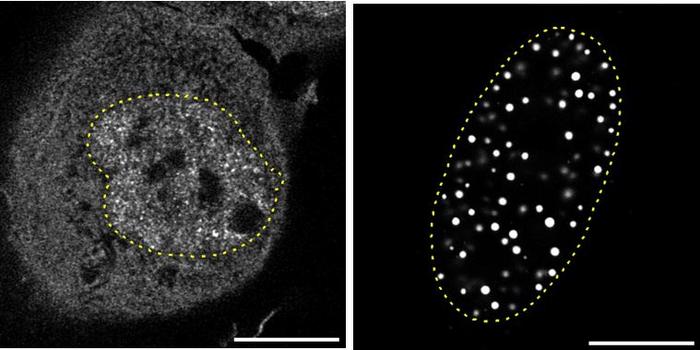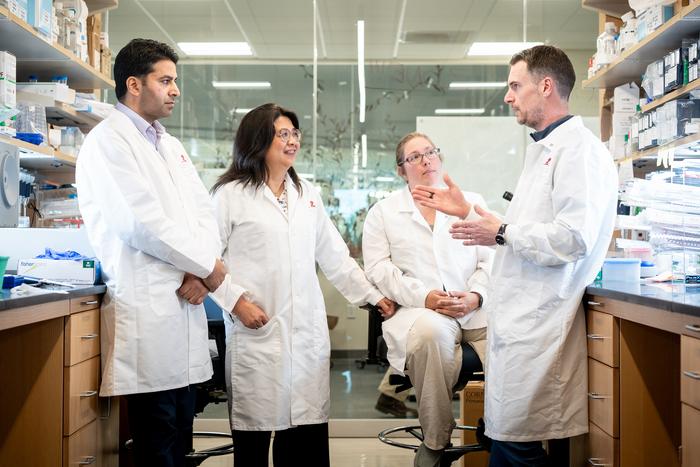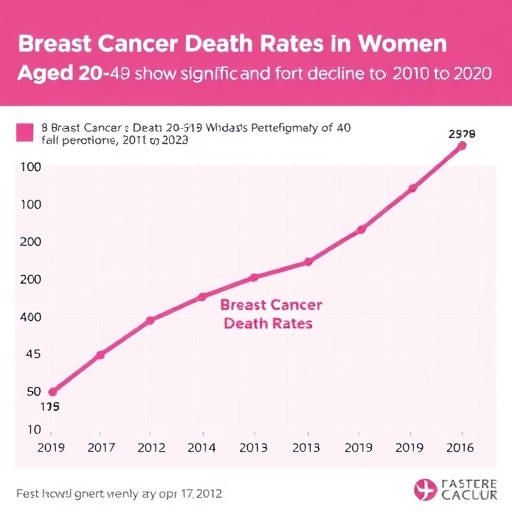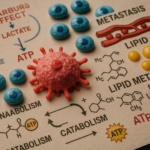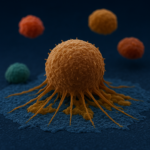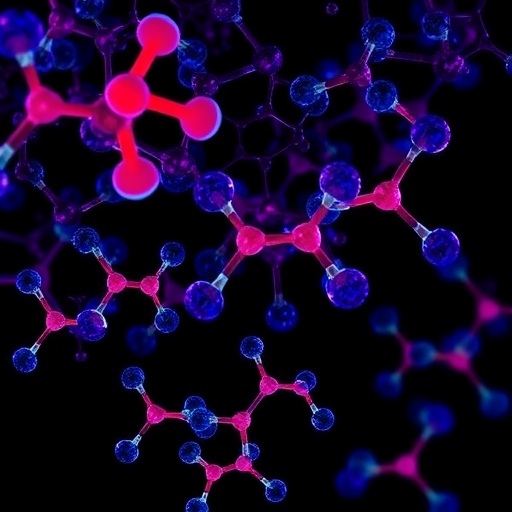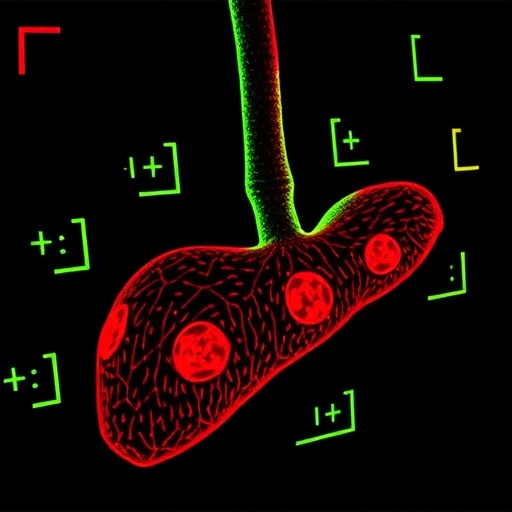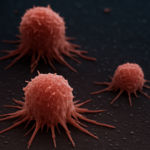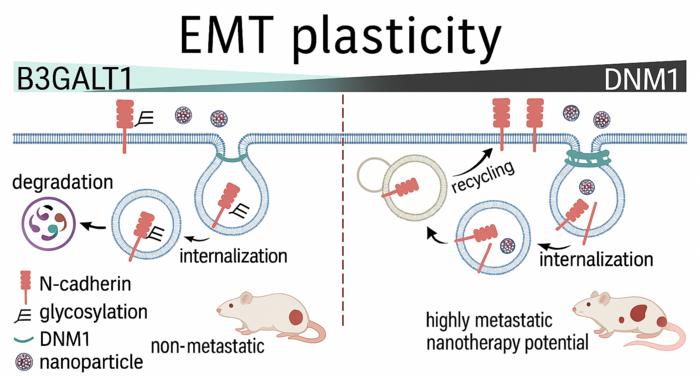Now Reading: HonorHealth Araştırma Enstitüsü, Agresif Pankreas Kanseri İçin Çığır Açan Keşifler Yaptı
-
01
HonorHealth Araştırma Enstitüsü, Agresif Pankreas Kanseri İçin Çığır Açan Keşifler Yaptı

HonorHealth Araştırma Enstitüsü, Agresif Pankreas Kanseri İçin Çığır Açan Keşifler Yaptı
PHOENIX — In a groundbreaking advancement for the battle against one of the deadliest forms of cancer, researchers at the HonorHealth Research Institute have unveiled promising preclinical results for a novel therapeutic agent targeting pancreatic cancer, an illness notorious for its resistance to conventional treatment approaches. This pioneering work emanates from the institute’s newly inaugurated Center for Translational Science laboratory located in downtown Phoenix, marking a significant milestone in the institute’s efforts to translate laboratory discoveries into viable clinical therapies.
Presented at the prestigious 2025 American Association for Cancer Research (AACR) annual meeting in Chicago, the study focused on RMC-6236, also known as Daraxonrasib, an innovative drug candidate designed to inhibit oncogenic RAS proteins—specifically KRAS, NRAS, and HRAS mutations that serve as key drivers of malignant transformation in many cancer types. This research is particularly crucial as KRAS mutations, especially KRASG12X variants, represent some of the most formidable obstacles to effective pancreatic cancer treatment, with prior inhibitors limited in scope and prone to resistance.
Pancreatic cancer is widely recognized as one of the most aggressive and lethal cancers, largely due to its insidious development, complex fibrotic tumor microenvironment, and intrinsic resistance to chemotherapy and targeted agents. It ranks as the third leading cause of cancer-related deaths in the United States, with an estimated mortality of nearly 52,000 individuals in 2025 alone. The urgent need for potent treatments that can overcome these biological hurdles cannot be overstated, underscoring the importance of this research.
The study deployed advanced three-dimensional culture systems, utilizing patient-derived pancreatic tumor cells harboring KRAS mutations. This approach offers a sophisticated model that better recapitulates the spatial and cellular complexity of tumors within the human body, enabling a more accurate assessment of drug efficacy. RMC-6236 demonstrated robust inhibition of RAS signaling pathways, which are central to tumor growth and survival, and when combined with established chemotherapy and targeted therapies, the compound exhibited synergistic antitumor activity.
Dr. Sunil Sharma, director of the Center for Translational Science and senior author of the study, emphasized the significance of these findings within the translational research paradigm. He explained that these encouraging preclinical results warrant further investigation through human clinical trials to confirm drug safety and efficacy profiles, thereby accelerating the path toward potential approval and clinical application. The promise lies in the ability of RMC-6236 to circumvent resistance mechanisms that have long thwarted effective pancreatic cancer therapy.
As clinical research technician and study lead author Taylor Bargenquast articulated, the intricate fibrotic tumor microenvironment characteristic of pancreatic cancer exacerbates therapeutic resistance by creating physical and biochemical barriers to drug penetration and immune infiltration. The combinatorial strategy using RMC-6236 aims to dismantle these defenses, enhancing drug delivery and efficacy, thus offering hope for improved responses in patients facing this devastating diagnosis.
Another pivotal contributor to the study was the Phoenix-based Translational Genomics Research Institute (TGen), affiliated with the City of Hope. This collaboration highlights the multidisciplinary and multi-institutional efforts necessary to tackle complex diseases like pancreatic cancer. Integration of genomics and molecular biology techniques facilitated the precise characterization of KRAS mutations and the mechanistic understanding of RMC-6236’s inhibitory actions.
The limitations of current KRASG12C inhibitors are well known within the oncology community. These drugs are mutation-specific and do not target the broader spectrum of KRAS mutations frequently encountered in pancreatic cancers. Furthermore, their use often inadvertently leads to the emergence of tumor resistance. RMC-6236 stands out as a next-generation agent capable of expansive RAS isoform inhibition, thus addressing a critical unmet need in targeted cancer therapeutics.
Study co-author Dr. Erkut Borazanci, medical director of HonorHealth’s Oncology Research Division, highlighted that combining RMC-6236 with standard-of-care chemotherapies and other targeted treatments not only amplified antitumor effects but also introduced a new avenue for overcoming the intrinsic heterogeneity and adaptive resistance of pancreatic tumors, setting the stage for innovative clinical trial designs.
The findings from this experimental study mark a significant step forward in the ongoing search for durable, effective treatments for pancreatic cancer. The ability to reliably target KRAS mutations could revolutionize the therapeutic landscape, improve survival outcomes, and potentially transform a historically fatal cancer into a manageable or even curable disease.
Importantly, this study reinforces the value of translational science—bridging laboratory discoveries and clinical application—as a critical component in the fight against cancer. The research outputs from HonorHealth’s Center for Translational Science serve as a paradigm for how modern oncology research can rapidly respond to clinical challenges and pioneer solutions that offer patients tangible hope.
Future directions for this research will likely involve Phase 1 clinical trials aimed at assessing the pharmacokinetics, safety, and efficacy of RMC-6236 in patients with KRAS-mutated pancreatic cancer. Monitoring response rates, progression-free survival, and potential side effects will be crucial to determine the viability of this drug as part of combination regimens.
The broader implications of this research extend beyond pancreatic cancer alone. Given the pervasiveness of RAS mutations across multiple tumor types, the development of an effective RAS(ON) inhibitor such as RMC-6236 might catalyze therapeutic breakthroughs for other malignancies driven by similar oncogenic pathways, including lung, colorectal, and hematologic cancers.
In conclusion, the emergence of RMC-6236 as a potent, broad-spectrum inhibitor of oncogenic RAS proteins offers a beacon of hope in pancreatic cancer therapy. By addressing critical mechanisms of drug resistance and tumor survival, this investigational agent represents a promising advancement poised to redefine treatment paradigms. Continued collaborative research and clinical evaluation will be paramount to fully realizing its potential and delivering life-extending therapies to patients in dire need.
—
**Subject of Research:** Cells
**Article Title:** Evaluating the efficacy of RAS(ON) inhibitor RMC-6236 combined with chemotherapy and other targeted therapies in 3D models involving patients with KRAS-mutated pancreatic cancer
**News Publication Date:** April 30, 2025
**Web References:** HonorHealth Research Institute: HonorHealth.com/research
**Keywords:** aggressive pancreatic cancer research, American Association for Cancer Research presentation, cancer treatment resistance challenges, Center for Translational Science innovations, Chicago cancer research conference, HonorHealth Research Institute discoveries, KRAS mutation inhibitors, novel pancreatic cancer therapies, pancreatic cancer treatment breakthroughs, patient-derived tumor effectiveness, RAS gene targeting therapies, RMC-6236 drug study












